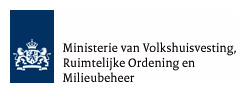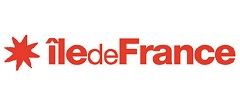WECF & Project Nesting glad with attention Dutch TV Program Zembla on EDCs (Endocrine Disruptors)
On December 19, the investigative TV report 'Zembla' paid attention to EDCs 'Endocrine Disrupting Chemicals' and their great risk for children
20.12.2013 |WECF

The development of a baby can be irreversibly harmed by "endocrine disrupting chemicals". There is growing evidence that these chemicals may result in permanent health damage to the hormone system of the baby. Pregnant women are exposed to these chemicals on a daily basis and transfer the chemicals to the child. These EDCs can be found in our food, in plastics , personal care and cleaning products. According to the World Health Organisation EDCs pose a threat to human health and the environment .
ZEMBLA traveled for this TV report to Denmark, where the government has implemented legal measures and public campaigns to inform pregnant women how to avoid EDCs. Endocrine disruptors have been high on the Danish political agenda for years. To protect public health, the Danish government tries to ban these substances from consumer products. Other European countries such as Sweden, France and Belgium are also taking action.
Letter to the Minister of Public Health
" Why does the Dutch government fail to protect vulnerable groups against chemicals of concern" This question was posed in an open letter by WECF, PAN Europe and Foundation Ecobaby to the Minister of Health and the Secretaries of States of Environment and Economic Affiars, after the Zembla TV Program was shown. The letter presented 9 urgent policy measures the Dutch government should take to protect children from endocrine disrupting chemicals.
#Zembla
WECF initiated this TV documentary and helped the journalists with background info and contacts. The Dutch scientists and pediatrician being interviewed , speak about their sincere concerns about the effects of EDCs on pre- and post natal development. They state that the test methods and legal standards are totally inadequate to protect the foetus and young children against EDCs, stating that the problem is underestimated by the Dutch government and that economic interests are given priority over public health.
The docu starts in the baby ward of a hospital, where pediatrician Gavin ten Tusscherexplains why and how he managed to persuade the hospital to substitute EDCS in the plastics of medical devices. He is very convincing. The focus of the program was on pregnant women and 'how they could avoid EDCs'. The Danish government and consumer organisation were used as an example that should be followed in the Netherlands, where government attitude is passive, not giving any information on risks of EDcs , waiting for the EU and not supportive to Denmark and Sweden and France for what they are trying to reach in the EU. The Dutch minister of health and the RIVM organisation refused to give a reaction or answer questions from the Zembla team. The Zembla twitter timeline near exploded during and after broadcast which showed that a real nerve in Dutch society had been touched.
The Zembla Program can be watched here (in Dutch).
The English translation of the Zembla program can be downloaded here.
More information in Dutch can be found here or on our website especially dedicated to young parents: Een Veilig Nest
Related News
Meet the Winners of the Gender Just Climate Solutions Award at COP24
On the 70th anniversary of the Universal Declaration of Human Rights, we awarded Gender Just Climate Solutions Winners at the climate negotiations in Katowice, Poland
11.12.2018
Invitation: Gender Just Climate Solutions Award 2018
10 December, COP24 Katowice
04.12.2018
Getting to the Future We Want
4-7 November, Brussels: European Environmental Bureau’s (EEB) Annual Conference
12.11.2018
GoodFood4All
WECF and partners all over Europe start GoodFood4All Campaign
06.11.2018
#Ruralwomen: join our Women2030 campaign!
15.10.2018






































